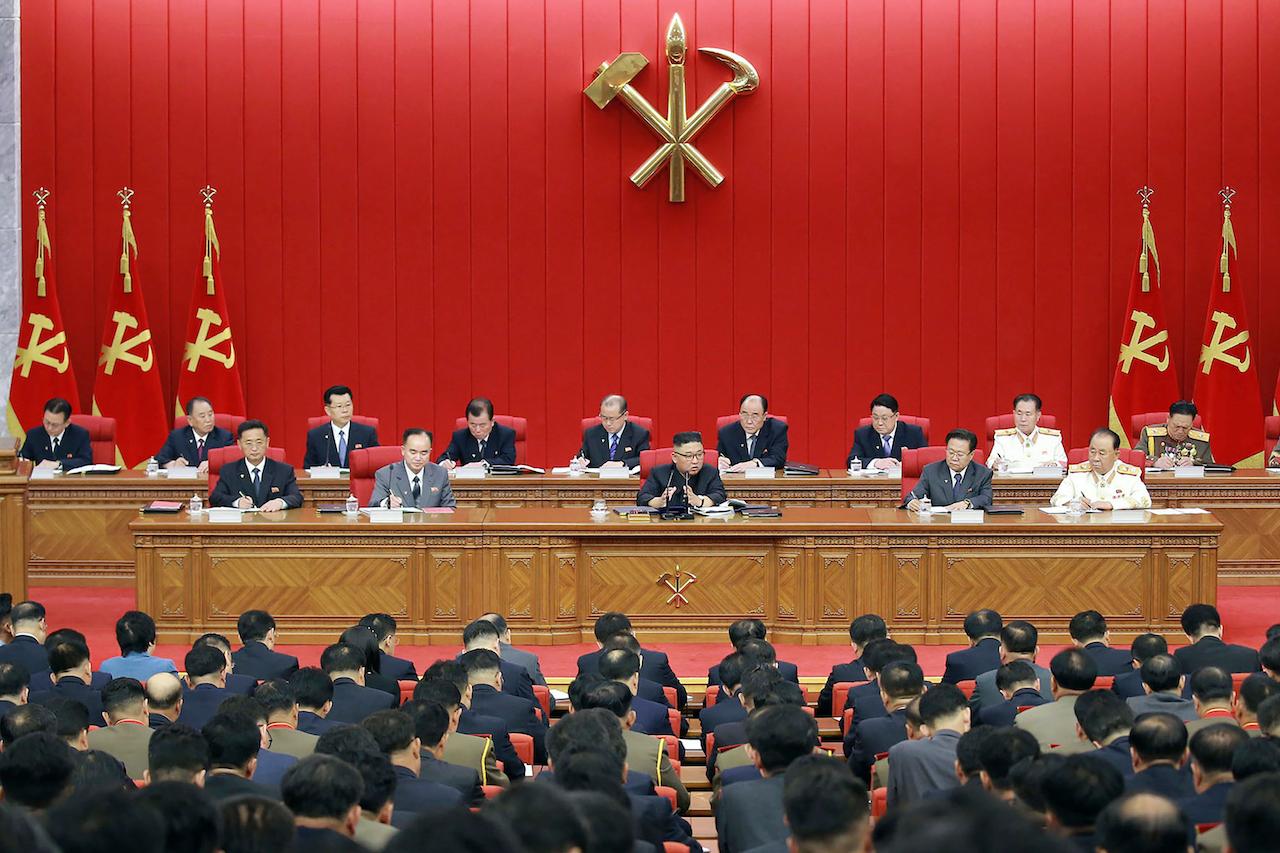North Korea’s Kim says food situation ‘tense’ due to pandemic, typhoons
Imports from China have now resumed at pace as North Korea eases its border restrictions.
Just In
North Korean leader Kim Jong Un has called for measures to tackle the “tense” food situation caused by the Covid-19 pandemic and last year’s typhoons, state media said on Wednesday.
Kim chaired a plenary meeting of the ruling Workers’ Party’s central committee on Tuesday to review progress on major policies and decide on measures to resolve economic issues, according to the official KCNA news agency.
The committee set goals and tasks to achieve its new five-year economic plan outlined at its previous session in February, including increased food and metal production.
Kim said the overall economy had improved in the first half of this year, with total industrial output growing 25% from 2020, but there was “a series of deviations” in the party’s efforts to implement the plans due to several obstacles.
“The people’s food situation is now getting tense as the agricultural sector failed to fulfil its grain production plan due to the damage by typhoons last year,” he said.
Kim called for steps to minimise the impacts of natural disasters as a lesson from last year and key to attain this year’s goal.
In January, Kim admitted his previous five-year economic plan had failed in almost every sector, amid chronic power and food shortages exacerbated by sanctions, the pandemic, and floods.
He also said the protracted pandemic required the party to step up efforts to provide food, clothing, and housing for the people.
Pyongyang has not officially confirmed any Covid-19 cases but the reclusive country has imposed strict anti-virus measures including border closures and domestic travel restrictions.
Covax, the global initiative for sharing Covid-19 vaccines with poor countries, has said it will provide nearly two million doses to North Korea but the shipment has been delayed due to lengthy negotiations.
China’s exports to North Korea rose in March to a six-month high, with outbound shipments to its neighbour that month nearly 400 times more than January and February combined, in a sign of easing border restrictions imposed due to the pandemic.
North Korea banned almost all cross-border travel early last year, and some countries including Britain, France and Germany withdrew their local representatives alleging shortages of necessities.
In recent weeks, however, there have been growing signs that North Korea may be easing its border restrictions.
An increased number of ships travelled to and from China, and North Korea is building disinfection facilities, including at an airport near its border, according to reports by NK Pro, a website that tracks North Korea.
“Overall, indicators strongly suggest North Korea is preparing for a resumption of cargo movement in and out of the country,” said NK Pro managing director Chad O’Carroll.
“This will provide much needed reprieve for farmers needing fertiliser, factories requiring foreign inputs, and citizens who have gone by for months without import basics like vegetable oil, cocoa and coffee.”
Subscribe to our newsletter
To be updated with all the latest news and analyses daily.
